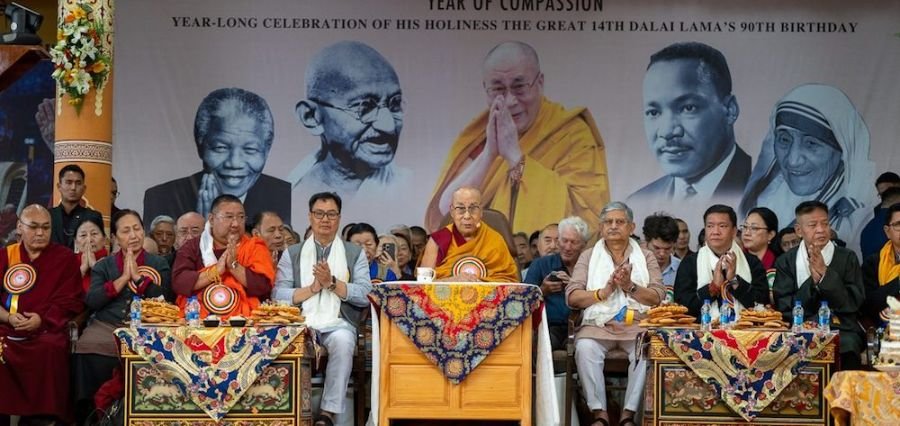Key Points
- Dalai Lama’s 90th birthday was celebrated by thousands of people from the entire world, particularly Dharamshala and India, in spiritual and cultural ceremonies.
- The Dalai Lama reaffirmed that his spiritual legacy would never cease and his successor would be determined by his own religion, not China.
Key Facts
- Commemorations started on June 30, or the beginning of Tibet’s fifth month in its lunar calendar, at India’s Tsuglagkhang temple.
- The Dalai Lama looked healthy and reaffirmed his spiritual mission to devotees, vowing he would complete it.
- He categorically ruled out any Chinese government-appointed successor, saying only his religion has the right.
Key Background
The 14th Dalai Lama, Tenzin Gyatso, was 90 and was celebrated globally as a greatly venerated spiritual leader and peace icon. Born on July 6, 1935, he was ordained as the Dalai Lama at age five and devoted decades to campaigning for compassion, non-violence, and self-determination for Tibet. He is in exile at Dharamshala since he escaped to India in 1959 when China invaded Tibet and founded the Central Tibetan Administration and went on to disseminate his teachings globally.
His birthday parties drew hundreds of thousands of supporters, monks, and officials from all over the world, and especially Dharamshala—the headquarters of the Tibetan government in exile. The birthday parties were made up of prayers, cultural programs, and public speeches. The Dalai Lama, at a ripe old age, spoke to the public affectionately and succinctly, which revealed that he was in good health and possessed high devotion to the spiritual and ethical welfare of humankind.
One of the central pillars of his message was his firm position regarding what would happen to the Dalai Lama institution in the future. The controversy over who is entitled to select his reincarnation has existed for a long time. The Chinese government is asserting that they have the right to select the next Dalai Lama, similar to in the case of the Panchen Lama—a step generally interpreted as political intervention. But the Dalai Lama affirmed decisively that the selection of his successor was in the hands of only the Dalai Lama Gaden Phodrang Trust that he acknowledged as his leader. He cautioned Tibetans and the rest of the world against yielding to any future successor China anointed.
This remark not only asserts religious independence for Tibet but also leaves the door open to conflict if China tries to install a Chinese Dalai Lama. The Tibetan leader stated that his own next reincarnation likely will be elsewhere in China, with China retaining the option of having two rival Dalai Lamas—twin claimants endorsed by the Tibetan spiritual community and by Beijing.
In reaching this milestone, the Dalai Lama reaffirmed his work in a lifetime for the benefit of mankind by compassion, communication, and peacefulness that have earned respect worldwide far beyond the Tibetan Buddhist world.

